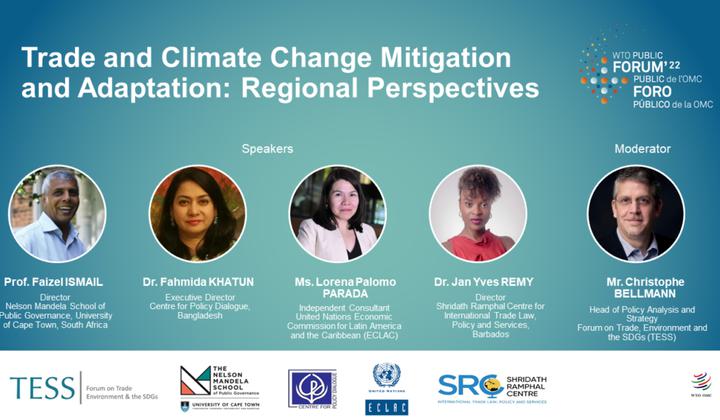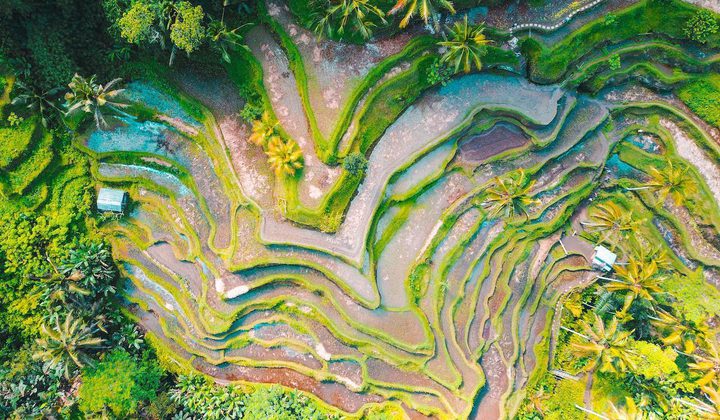The Association of Southeast Asian Nations is a highly vulnerable region to climate change impacts. According to the Global Climate Risk Index 2020, countries such as Myanmar, the Philippines, Vietnam and Thailand were among the top 10 most affected by extreme climate events during 1999–2018. In 2015, the Asian Development Bank predicted that climate change has the potential to cut the region’s Gross Domestic Product by 11% by the end of the 21st century. Looking ahead, Southeast Asian countries face the prospect of increasingly severe flooding, more extreme weather events, and large-scale loss of fertile coastal land.
As a result, climate change mitigation and adaptation are high on the policy agenda of both ASEAN as the regional bloc and the respective Member States. At the national level, all Members have also adopted various policies/ strategies related to climate change, sustainable development or green growth, which are closely linked with mitigation, and adequately cover adaptation and resilience concerns. So far, however, trade and trade-related measures have not been much used or acknowledged by ASEAN governments as a tool for addressing these concerns and priorities.
At the global level, the debate on trade and climate change has largely focused on concerns of more advanced economies starting with proposals to impose border carbon adjustments on certain imported goods based on their carbon content. ASEAN Members have so far mostly reacted to those proposals but haven’t really articulated their own priorities on how cooperation on trade can support climate change mitigation and adaptation efforts in South East Asia. According to research by the UN Economic and Social Commission for Asia and the Pacific, economies in the Asia-Pacific region have significant room for making their trade and investment more climate-smart. For example, it was found that barriers to trade in environmental goods are often more prevalent than barriers to trade in carbon-intensive fossil fuels.
According to research by the UN Economic and Social Commission for Asia and the Pacific, economies in the Asia-Pacific region have significant room for making their trade and investment more climate-smart. For example, it was found that barriers to trade in environmental goods are often more prevalent than barriers to trade in carbon-intensive fossil fuels.
Against this background,TESS and CUTS International, Geneva hosted a regional consultation workshop on “A Southeast Asia Perspective on Trade and Climate Change Mitigation and Adaptation: Policy Priorities and Recommendations for Action," to consult with relevant stakeholders from ASEAN on these important issues.
The workshop aimed at:
- presenting preliminary findings from a TESS-CUTS research paper providing a regional perspective on how international cooperation on trade and trade-related policies can support climate change mitigation and adaptation efforts in South East Asia and identifying priority area for action and recommendations at the multilateral level;
- soliciting stakeholder feedback on these findings and seeking further information and inputs on relevant topics; and
- discussing recommendations on areas and topics where international cooperation on trade could support climate change mitigation and adaptation efforts in Southeast Asia, as well as actions to be taken by or proposed to relevant stakeholders especially ASEAN policymakers.
The workshop witnessed attendance of over 35 participants from ASEAN government representatives, the ASEAN Secretariat, UNESCAP, private sector representatives, academia, civil society organizations, TESS and CUTS International.
Agenda
Opening Remarks
- TESS & CUTS International
The Role of Trade and Trade-Related Measures in Promoting Climate Change Mitigation & Adaptation Actions: Preliminary Findings from Southeast Asia
- Alice Pham, Consultant, CUTS International
Comments by Discussants
- H.E Mr. LONG Kemvichet, Ambassador and Permanent Representative of the Permanent Mission of Cambodia to the WTO and other International Organisations (Economy and Trade) in Geneva
- Imelda Bacudo, Senior Consultant to the Association of Southeast Asian Nations (ASEAN) and its ten Member States
- Alexey Kravchenko, Economic Affairs Officer, Trade Policy and Facilitation Section, Trade, Investment and Innovation Division
United Nations Economic and Social Commission for Asia and the Pacific (UNESCAP)
Q&A and General Floor Discussion on the Presentation
Closing Remarks
- TESS & CUTS International
Click HERE to view the presentation.
Developing Country Perspectives
This dialogue is part of a series of dialogues & policy papers commissioned by TESS with partners on Developing country perspectives on trade, climate change, and sustainable development.





